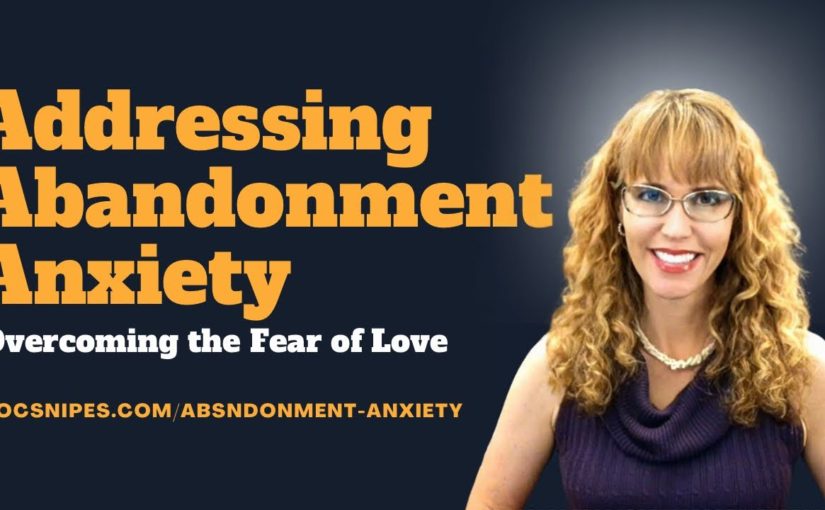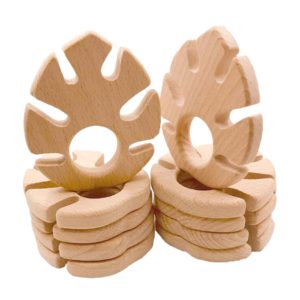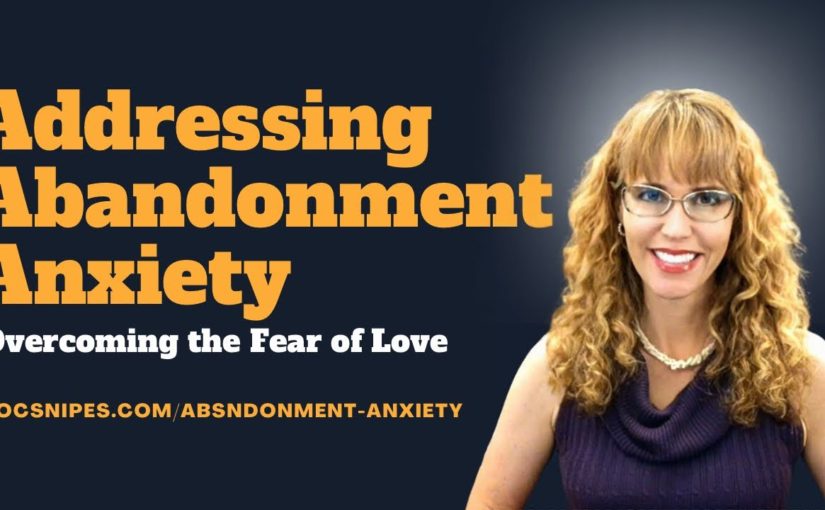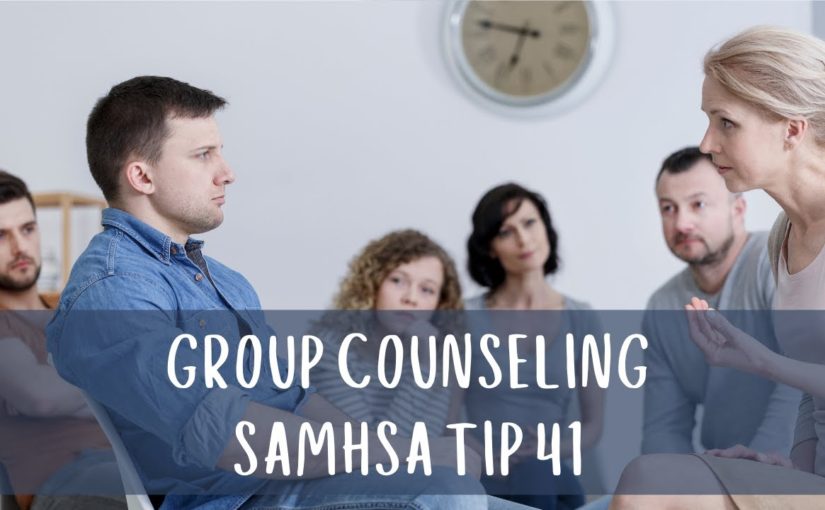This episode was pre-recorded as part of a live continuing education webinar on demand. Ceus are still available for this presentation through all CEUs registered at all, CEUs comm slash counselor toolbox. I’d like to welcome everybody to group therapy, which is a product of treatment improvement. Protocol 41. Today we’re going to be going over chapters 1 and 2 tips 41. They did make it into an in-service, which is what I loosely based. The next set of presentations on and we’re, going to talk about some of the different ways you can use group and make it beneficial and hopefully easier than some other ways of approaching treatment. So, in the first part of today’s presentation, the goal is to provide an overview of group therapy which is used in substance, abuse, and mental health treatment, and, as I said, I’m, loosely basing it on it, but a lot of times the groups That we’re doing in substance abuse are the same ones. We’re doing in mental health. We’re going to discuss the uses of group therapy in treatment, define five therapy models, explain the advantages of group therapy and modify group therapy to treat and address substance abuse issues. So group therapy is awesome because it supports members in times of pain and trouble. It’s something that we can make available to the community mental health center that I worked at before and if you’ve worked in community mental health or even private mental health. Maybe a lot of times. There are waiting lists to get into IOP to get into PHP to get into residential to get into detox. So one of the things that we started instituting was an intervention-level psycho-educational group, so we were able to sort of keep a tab on people who are on our waiting list. They got on the waiting list and they started coming to these groups that provided them with tools provided them skills. We weren’t treating any particular issue. We were focusing more on life skills, distress, tolerance, emotion, regulation, and all that other DPP kind of stuff. Helping them get through, was also enabling us to provide them with some hope and keep their motivation going. Group therapy can enrich members with insight and guidance. I found, and one of the reasons I love doing group so much is because you can ask a question to a group of 10 people and get 8 or 10 different answers to it, and the cool thing about that is that each person has their blind spots, so what they might not have thought about before might still be germane to them, and somebody else puts it out there. So when you start putting asking questions and putting the answers on the board or using the flip chart papers and having stations around the room that people go and contribute to the group process, you start getting a lot more feedback from individuals and they’re going To come up with ideas and suggestions and thoughts that not only each other had never had so they’re going to enrich each other’s lives, but they teach me something every single time. So I loved doing and still do love doing group and it’s. A natural ally with addiction, treatment or treatment in general group therapy enables us to provide a basic framework of information to people in a cost, effective manner. You know there are a lot of things like emotion, regulation, distress, tolerance, self, esteem, skills, effective interpersonal communication relationship skills, and self-esteem. I may have already said that we give to all of our clients whether it’s substance, abuse or mental health, and everybody who’s coming through the program. Has this curriculum? If you will go through now, it’s going to apply a little bit differently to each one and they’re going to take the stuff they get from those groups and they’re going to be able to take it back to their Therapists and say this is what I learned in group. If it is just a group process, then they’re going to be able to talk among each other and come up with their ideas, but IOP, PHP, and residential all have individual accounts. One component, if you’re doing an intervention level group 0 05 on the ACM. If you will, you may not have that individual therapy component. So you want to make sure that when you provide members with information – and you help them start gaining insight you tie it up in a nice little bow at the end and help them apply it. So what did you get out of today?’s group that could have been helpful last week and how could you have used it then go back around the room and say from whatever you got from today:’s group or what’s a morsel you got from today,’s, group that You’re going to use next week, and how do you expect to do that? So I encourage them to take one or two morsels and figure out how they can use that in their particular life. A little bit of a slide track here. In support groups, if somebody is going to celebrate recovery or 12 step group, or even a depression or anxiety management group, I encourage them when they walk out of the group to be able to answer the question. What was in that group for me? What can I take away from that now? It may be, I know what I don’t want to do, or it may be. That was a great idea that so and so had, but I want them to answer that question every time, not just walk out of a group and go well. That was a good group. Why? Why was it a good group? What did you get out of it? Group therapy, as opposed to self-help groups and support groups, if you will have trained leaders, so you do have a lot more ability to facilitate what’s going on and kind of point people in directions that you want them to go. Where support groups may have facilitators, but they don’t have the training that clinicians do and group therapy produces healing and recovery from substance abuse and mental health issues. You see a lot of people gain. Hope you see a lot of people gain optimism. You see a lot of people learn tools from one another and nobody can comic con. If you will – and I had to figure out a way to say that a little bit nicer than the way I usually do. But when people are in recovery and you can even think about it with your teenagers, if you’ve been around known more if you have them, teenagers hear what their parents say and they’re like yeah, okay, whatever old, fuddy-duddy, but when their Parents or when their peers say it, it carries a lot more weight, so sometimes the hope and faith and tools and stuff that they hear from their cohort has more impact than what we say. If we’ve created a good supportive, healthy, nurturing environment, group therapy has a lot of power to it because it’s basically like having a bunch of code therapists and the ability to control it a little bit more than in group therapy. You can address factors associated with addiction or these factors by themselves, such as depression, anxiety, anger, shame, temporary cognitive impairment, character, pathology, ie, personality disorders, medication management, and pain management. So let’s go through these a little bit. Depression groups are wonderful. Now we’re going to talk about different types of groups and there’s everything from the traditional therapy group where people are sitting in a circle and or however, usually in a circle and sharing what’s going on in their particular situation. To psycho-educational and skills groups, where we’re, providing them the tools to understand what’s going on and the tools to deal with what they’re experiencing, and you know with depression. One of the groups I’m, going to do is depression. Well, any of these is to talk about what is it. What causes it? Where did it come from? How is it impacting you to have people start figuring out what that means to them, then we’re going to start talking, probably in the next group, about what are some ways we can start addressing this and what has worked for you. What what has worked in the past and what things might you want to do? Try? Temporary cognitive impairment can be addressed in the group in the sense that we can provide some life skills coaching. We can provide for early recovery and substance abuse. For example, a lot of people come to our groups, or at least where I used to work. They would get out of detox and they weren’t fully detoxed. Yet they had two days under them and the drug was out of their system. For the most part, you know, except for like marijuana or benzos, but they were still not on their game so getting them to just get there on time, be prepared, pay attention, and process what’s going on was huge. We didn’t expect to make huge therapeutic gains, but what I wanted was somebody to be able to dress up and show up. If you will character, pathology can be addressed in groups, one of the basic reasons that Marsha Linehan created dialectically. Behavior therapy was to address borderline personality disorder and DBT is very strong in skills groups. Now it has individual components and coaching components as well, but she uses the skills groups to help people with character, pathologies, and borderline personality disorder, among other things, start learning about what are these symptoms. What do they mean? What does it look like and how can I deal with them and then they personalize it in their sessions? Medication management is huge for me, whether it’s, somebody who’s on antidepressants or somebody who’s on methadone. I don’t care, but I think it’s really important for people when they start taking medication, especially psychotropic medication, whether it’s, addiction or mental depression, or anxiety to be able to go into a group and talk with others who’ve Been on similar medications understand the side effects understand that gets better understand what they’ve done, that helped them deal with the side effects. For example, a lot of my clients used to be on Seroquel and Seroquel is extremely sedating, so a lot of them found that they needed to take it at night. But I had a small group of people who, when they took it at night, you know they would go to sleep at like 11, 00 get up at 6 30 and they were still groggy. As I’ll get out from the Seroquel and among themselves, they started talking about okay, so I need to take it at 7, 00 every night for it to be out of my system. So I can function the next morning they worked it out by talking about how long before it starts sedating you and how long the sedating effects last, but it helped clients stay more compliant with their medication because a lot of times and not knock Psychiatrists or doctors, but the ones that I’ve had experience with. For the most part, I’ve had a couple of awesome: attendings they don’t have the patients they don’t have time in their schedule to hear all of the issues and help the client brainstorm, and a lot of times they don’t think to share with the patient. These are the most common side effects that people tell me they experience. Yes, they get the handout from the pharmacist. There are like six pages, long and in eight-point font of all the potential side effects. But what do people feel like when they start taking it? This Zoloft is another one. You know that’s, what one is commonly prescribed and a lot of patients feel kind of like they’ve got the flu. They feel dizzy for the first two-to-three days and then that wears off, if they understand that, if they have a place where they can go and talk about the side effects and talk about how to deal with some of the side effects, it helps. And this is also a place where they can talk about things like weight, gain and fatigue, and lethargy. And how do you deal with this when you’re on this Giller medication, it doesn’t have to be facilitated by a nurse or a doctor. That’s more helpful if it’s facilitated by a clinician. What we want to do is encourage patients to become aware of what their potential obstacles are to be maintained to remain med, compliant, and identify some ways to address them. Some intervention that might be effective and then go talk to their doctor, so they are armed with knowledge when they go see their psychiatrist and say I’m having these problems, it also gives them a chance to talk to other people and understand what it looks like if the medication is working for them and gives them hope if they have to change two three four times to find the right medication, so medication management obviously, is a group that I think is important. If you’ve got clients that are medicated on pain, management,’s, pain can cause depression and anxiety. Your body perceives pain as a stressor, so anybody who has pain may experience negative affect, especially if it goes on for a while, so helping them figure out ways to deal with the pain and ways to deal with breakthrough pain. If you’re dealing with somebody who’s in recovery, then you’re also dealing with the issue of pain management without narcotics, so pain management groups can help teach stress management skills, progressive muscular relaxation, and sharing nonpharmacological interventions that they can discuss with their doctor, such as massage physical therapy, acupuncture yay, it also is a place that people get hope again. This is going to keep coming up with group therapy hope because they hear other people’s stories and yeah. I hear that after John’s accident, he was in agony for six months and he was able to get through it, so they can share and support one another. Another group provides positive peer support for abstinence from substances or addictive behaviors. Remember we want to check our clients, and assess our clients to make sure they’re, not engaging in addictive behaviors like internet gaming, pornography, gambling, food-ish food, and eating addiction. Anything like that, but it also provides positive peer support for positive action in any direction. So if it’s growth goals, if it’s depression goals, the group is there to cheer you on. They’re also there to notice when you’re starting to lose your motivation and point it out and help you increase that motivation groups reduce isolation. So if you’re dealing with someone who’s got empty nest syndrome, someone who’s got depression, someone who’s got it up an addiction. It helps them understand that they’re, not the only one dealing with that and they can share and support, enabling the members to witness the recovery or transformation of their fellow group members and see how other people deal with similar problems, because we all I mean There’s what twelve people in class today. So if I throw out any problem, I’m probably going to get at least eight or nine different suggestions for how to deal with it and that’s cool, but that’s. The awesome part about group two because they can share. What do you do when you can’t get to sleep at night? What do you do when the anxiety is so oppressive that you feel like you can’t breathe, rich, and provide information to clients who are new to the recovery process? So they know what to expect they’re not going to be giddy as all get out. Twenty-four hours, seven days a week, 365 days a year, probably ever that’s not reality, but it helps them learn what the recovery trajectory looks like helps. They accept the fact that they’re going to be bad days and it helps them see how they can be empowered in the process. It provides feedback on group members, values, and abilities. They’re going to hone in on their values, and you know I encourage them in my groups and obviously from a multicultural perspective. I think it’s vital that we encourage members to explore their values and accept or reject them as they are and do not meet them. For me to say whether your values are right or wrong, I want you to know what your values are and make sure that they’re. Yours, not something that came from the media or something that just kind of popped into your head. You don’t know where it came from that you, don’t agree with, and sometimes that will come up, especially as it pertains to medication, use or controlled drinking, or anything like that. But it also provides feedback on their abilities, and this is where I focus more than values. What is it that you have done already? What are your strengths if you went three hours yesterday without being depressed and crying that is awesome? What did you do? How did you do it? How are you able to do that, I want to highlight that ability, so we can build on it. We want to highlight the exceptions to the problems and offer the sort of family-like experience where people get a sense of belonging and support when groups are run well, even if their skills are psycho-educational groups when a group member leaves drops out relapses, whatever happens, They just if they suddenly leave. It affects the entire group. When you’ve got a well-run group and a group member graduates or completes treatment, there’s still a whole process and sort of a grieving process, as that person leaves the family and launches out of the nest. Whatever you want to say, we the way I’ve always run groups and what the way I was taught was. We always celebrate that at the end of somebody,’s treatment, or experience after the last group that that person attends we have a little bit of a little pizza party or something to celebrate. Let people say their goodbyes and have a good sense of closure. A lot of our clients did not have good family experiences, so we want them to have the experience of being supported, being able to have different opinions and disagree with others, but being respected and being able to care about groups encouraged coach support and reinforce What they’re doing? Well, we don’t have to focus on what they’re doing wrong. You know, we can talk about that. An individual – or you know it may become germane to the group, but what we want to do is reinforce what they’re doing. Right from a management perspective groups allows a single treatment professional to help several clients. At the same time, as I said, there are a core set of groups – educational modules, if you will that, I think all clients need to be exposed to so group is a great way to do it instead of saying the same thing six times a day to Each one of your clients having a group available with the advent of media and Internet, just like we’re doing right now. Web chat web groups. You can do some skills-based groups, you know if they’re, not treatment. You don’t have as many issues with confidentiality, but you can also have videos online that you have them watch, learn from complete a worksheet and then come and participate in a one-hour group, instead of maybe having to sit through the whole lesson, which is An hour or so and then participate in the group, so there are a lot of different things that you can do using group techniques to reach a bunch of people in with one treatment provider. In the same hour. Groups add needed structure and discipline because, generally the group leader has a certain goal for the group or has a certain style of managing the group, so it can help sort of add a rhythm. If you will to the group process. Now we’re talking about traditional therapy groups. You’re going to be sort of like the parent that controls the rhythm of the family. If you’re talking skills or psycho, read groups, you’re going to be setting more of a tone like a teacher and creating a learning experience, but it adds structure, so people feel safe. They know what they can share, what they’re. What’s too much sharing or what’s inappropriate sharing and it helps people also learn to bite their tongue, wait their turn all those other things that can be helpful in life. They instill hope in a sense that, if that person can make it so can I so they see people doing a little bit better yeah. They also see some people doing a little bit worse, sometimes, but that’s an opportunity for them to be able to reach out and provide support, and that helps the person providing support as much as it helps the person receiving it. I truly believe that most people get a sense of contentment if you will, by being able and being able to reach out and help someone that they are concerned about, it provides support and encouragement to one another outside the group setting now this gets a little dicey Depending on your groups and your agency philosophy in reality, in substance abuse groups, the people that are in your group are probably going to be going to the same support group meetings so telling them not to ever contact each other outside of the group is unrealistic. They’re going to see each other in the community, so it’s important to help them understand how to set boundaries and what’s? Okay, behavior, and what’s? Not okay, behavior between group members, other groups, other facilities are less stringent on that and encourage the clients to reach out to one another outside of the group setting. So, depending on the group, the issue, your agency, all that kind of stuff there’s going to be more or less sharing. What I want to see, especially, is, if you have, for example, in IOPS three hours here and have three groups with breaks. I want to see people talking outside a group. I want to see people sharing, not just all sitting in there going when do we get out of here? I want them to develop relationships and learn how to effectively communicate so group therapy is not individual therapy done with an audience. It is not a mutual support group. It’s designed to help people develop and practice knowledge and skills in a microcosm. You’re, creating a mini family or a mini-community. It aids patients in learning how to develop healthy, supportive relationships and also how to terminate relationships, because sometimes when people graduate they move on it, which doesn’t necessarily mean that they’re going to continue to interact with the clients in the group. Alright. So the second half of this class, we’re, going to look at the group therapy models used in treatment, explain the stages of change, and discuss three specialized group therapy modules that may be used for the stages of change. I’ve gone over this before for new people. I’ll go over it again, real quick think about getting into a pool in the summer. It’s hot it’s like 90 degrees. You are sweating bullets, pre-contemplation, and you’re still laying on the lawn chair going. I ain’t hot. Yet no, I’m not anywhere near hot enough to go near that pool contemplation you’re starting to get hot and sweaty, and you’re looking at the pool going. You know that might be a nice change in preparation. You move to the side of the pool and you’re dangling your feet in the water trying to figure out. If you’re ready to take the plunge because it’s cold, I mean compared to the 90 92 5 degrees C is outside and you know your 98 6 body temperature water is cold, so you’re preparing action is when you jump in you. ‘re, like I, can’t take it anymore. I’m too hot to jump in the pool. Now, if that pool is too cold, if it’s too painful to stay in there because you’re just like a ho ho, you may jump back out again and back into preparation or further back. If you get in there and get moving – and you know, get your body temperature back up that’s – sort of basically like treatment – and you’re getting the swing of things, then you just want to maintain. So you don’t get cold again and recurrence is when you get out you get hot again and go through this process again so pre-contemplation, I ain’t got a problem. Contemplation yeah, I’m a little uncomfortable, but I’m not ready to do anything yet preparation. I’m starting to get ready to make a change because this is uncomfortable, but I’m not very it action I’m on it, and maintenance is keeping your gains and maintaining a steady state, so variable factors for groups, the group leader group or Leader of focus, so if you’re focusing on a part of it, is your training. You know if you are more Rogerian client-centered in your training versus cognitive, behavioral versus DBT versus AC T, whatever your theoretical underpinnings are and what you choose to focus on. In that particular group, there’s a lot of stuff. We can focus on whether it’s cognitive, physical, or emotional. We want to another thing that affects it is the specificity of the group agenda. If you’re going to have a group and it’s on self-esteem, well that’s not specific, so we could go sixteen different ways till Sunday if you’re looking at self-esteem and disarming the internal critic. Now that’s much more specific for that group, so that’s going to affect what that group looks like for that session or that says sessions how similar or different your group members are. If they have a lot of different experiences, you’re going to have a different experience as a group leader. Then, if you have a lot of people who have the same experiences, open, ended or determinant duration of treatment, if you’ve got a group that somebody can join and if they want to stay for 104 weeks, they can stay for 104 weeks. That’s up to them versus a group that is 16 weeks long that’s also going to affect how your group goes. What do you cover, how connected do group members become? I use 104 weeks just to sort of overemphasize. I hope nobody stays in the group for 104 weeks, but the level of leader activity is. I have seen groups where its leaders will throw out a discussion and are like okay topic for today is what do you think about it, and let the group facilitator with a little bit of nudging here and there versus other groups where the leader is very involved In goes around goes okay, Sam.

What do you think about this sally? What do you think about it and that affect how people react and what they expect it? Doesn’t necessarily affect what they get out of it, but these are variables that could affect how someone meshes with the group. Not everybody is going to like a real open, ended, a loosey-goosey group I don’t. You know I’m structured. So I prefer to be in groups where I know what the agenda is, and what we’re going to do. In my groups, start with a review from the last group that’s the first five minutes, and check in with everybody. Next, in five minutes we do a 15 to 20-minute psycho, ed piece, and then the last. You know 30 minutes of group. I spend going around the room and having people tell me, what is it that you got out of this? What do you think you could use this next week etc and apply it to what they know that’s how my groups go, so they’re, really very structured. You’ve got to be able to drop back and punt. If a client is in crisis or something strikes a nerve with them, you know you might have to change up a little bit. But overall you’re sort of setting the tone for what’s going to happen in the group, the duration of treatment, and the length of each session. You’re going to cover a lot more in a 3 hour of IOP session. That and treatment is five days. A week for 12 weeks, then you’re going to cover in a treatment program that’s one hour a week for eight weeks, just knowing what you’re going to try to cover will affect the depth or the breadth of what you go through. The arrangement of the room also affects how the people interact. If you have them set up in theatre, style, or classroom style. People interact differently than if they’re all sitting around in a circle, and if you ever want to experiment with that, it is interesting to notice how much differently people interact and how much more they seem to participate when they’re sitting sort of in A circle versus when they’re in theater style and I feel like they can hide and the characteristics of the individuals. Sometimes you’re, going to have people who are enthusiastic and chatting. Sometimes you’re going to have people who are not, and it could be for a whole host of reasons. It could be a bad fit, it could be their involuntary, or it could be they just got out of detox. It could be that they’re. All are just at that level of clinical depression that they’re having a hard time staying with the group and it’s up to us to adjust to try to meet the needs of as many people in a group as possible. Now, while I’m saying this, they didn’t say to size of the group. Here, the recommended size of the group is 8 to 12 people. If you’re dealing with adolescents or people with severe and assistant Mental Illness, it’s more along the lines of 812. For your average group 15 for psycho-educational and skills groups any more than 15. You’re doing a class and not a group. Psycho-egg groups assist individuals in every stage of change, pre-contemplation contemplation, yay. It helps clients, learn about their disorders, their treatment or intervention options, and other resources that might be available to them, such as assistance with prescriptions or physical therapy, or whatever other wraparound services. We often call it might be available. They can also be used to provide family members with an understanding of the person in recovery, so family egg groups can be awesome because then you get to understand and hear what the family thinks is going on and expects is going to happen in treatment and What they’re seeing and hearing, and you can normalize for them what’s going on with the client, so somebody recovering from clinical depression or somebody with bipolar disorder. You know this is what recovery looks like this is what living with the disorder looks like. This is what being on this medication looks like, I, ‘ve had a lot of patients because I deal with mainly co-occurring. I’ve had a lot of patients who have bipolar disorder, and you know some sort of substance abuse issue. They start taking. Seroquel, because that seemed to be the drug of choice for our prescribing at that particular time and they would start acting all groggy and family would freak out going you’re using again, and so Family Education groups were a great time for us to educate. Not only about the disorder but also about treatment, medication, side effects, and how to interact with the loved one to be as most supportive as possible. So ad groups educate about a disorder or teach a skill or tool and work to engage the clients in the discussion. I don’t want to stand up there in the lecture. I want them to be able to throw out ideas. So if I say you know what is it that you do when you’re struggling with somebody, because they just great on your every last nerve, what are some things you do to solve that problem or to deal with it? I don’t want to just tell them everything I want to do something more Socratic and encourage them to tell me how they work with it, and if they come up with something that’s, not quite on point. As far as being the most effective or healthiest approach, then we’ll talk about it and we’ll say well. I’m sure that’s worked for you. I’m wondering you know if there’s a kinder gentler way to do it, or you know you kind of massage it a little bit to morph it into something useful. We want to prompt clients to relate what they learn to their issues, including their disorders. You know how you, how this relates to your depression, but also your goals, your challenges, and your successes? Psycho-ed groups are highly structured and follow a manual or curriculum, and it doesn’t have to be a manualized curriculum that you buy from somewhere. You can create your curriculum, but you teach the same thing and it’s sequential and it follows a teach, apply practice method. So you teach a skill, you have them talk about how they would apply it, how that might apply to them, and then you have them practice it in role plays or imagine how they might use it. Next week, basic teaching skills are required for psycho-ed groups, though, which requires that you understand the basic components of learning, and I call these the three C’s capture, which is how you get the knowledge I mean you got to get it into your brain. Somehow I am a visual kinesthetic learner. I learned virtually nothing from sitting in lecture classes. I’m off in la la land in about 30 seconds. I know this about myself, so I need to have material that I and see, which is why I do powerpoints here some of y’all may not might not even be looking at the screen. You may be often doing something else and listening to me more power to you. However, you get the information in your brain is great. Global and sequential. Some people are global. They need the big picture when they’re doing a puzzle. They want to see the box first to do the frame and then fit all the pieces in sequential people. Don’t want the box that’s cheating they look for pieces and put them together and then try to figure out how all the pieces go together to make a hole and then their wall out as a whole. To appeal to both of those at the beginning of the group give an overview of what you’re going to cover in the group, and if you can sort of a written agenda it’s, not always practical. I always tried to put it up on the whiteboard. We always had issues with how many copies we were allowed to make and stuff. So in the interest of saving trees, try to give them some sort of an agenda, so they know what the progress is or what they can expect from group talk about it, so people can hear it and apply it through role plays having them apply it to themselves. Make them manipulate that information in their mind and provide visual representations like bullet points of what you’re going over. If you can’t, if copies again are an issue, have them bring a notebook and write on a whiteboard, so they can see it. So you’re presenting information in as many ways as possible. Conceptualization is relating the information to building blocks. So if you’re teaching a unit on cognitive distortions, then you’re going to talk about maybe using extreme words or nothing talk. So I might say tell me about a time that you’ve said something like you always do this and then what we’re going to talk about, how to change that and how you know. Thinking about things that way might be contributing to some of their distress and then caring. This is the biggest one which is again why I have clients when they leave a group, ask themselves: what could I get out of that? Why was that important to me if they’re not motivated to remember it, they’re not going to think back to high school biology or college humanities archaeology? 101. For me, I learned what I needed to learn for as long as I need to learn. It’s to pass the test, and then I forgot it all because I didn’t care about it, so we want them to care or they’re not going to remember so get it in their heads and help them relate it to something they know and make Them care about it, make them figure out why it’s important to them, foster an environment, to support participation, encourage participants to take responsibility for their learning, use a variety of learning methods that require sensory experiences, which means talking about it. You know talking about it listening to it and maybe drawing art therapy try to incorporate as many senses as possible. I always find that role plays are a big hit. You can also break up concepts and have to break up your group into smaller groups and have each of the smaller groups reteach a concept to make sure that they understand it and be mindful of cognitive impairments. So if you’ve got someone who is impaired in some way, make sure that you have some sort of method to ensure that that person is keeping up with the rest of the group. If it’s a diverse group skills development cultivates the necessary skills to prevent a relapse, depression, anxiety, and addiction and achieve an acceptable quality of life. Part of the skills groups assumes that the clients lack needed skills such as coping skills, interpersonal skills, and communication skills, hence the term skills group. So we want to allow clients to practice skills in groups. Psycho-ed groups provide the knowledge and, if you remember basic treatment, planning, and knowledge skills and abilities, so you know it, you learn how to use the skill and then the ability is a put those skills into practice. So we want them to be able to practice. These skills in a safe microcosm, you want to focus on skills, directly related to recovery and those to thrive in general. Think about Maslow’s hierarchy. They need to get those biological needs met, they need food, shelter, medication, pain management, health, safety and safety from themselves and love and belonging. So we want to help them make sure they’re getting those not just focusing specifically on depression or anxiety skills development groups have a limited number of sessions and a limited number of participants. So everybody can practice. We don’t want a big auditorium. We want that 8 to 15 number ideally, and there used to strengthen behavioral and cognitive resources. Skills groups focus on developing an information base on which decisions can be made and actions can be taken. So when they’re thinking when they practice the pause and they’re trying to decide okay, what is the best reaction to this current situation that’s when skills kick in and they’ve got a menu of skills to choose from cognitive, behavioral Groups, conceptualize dependence on substances as a learned, behavior that subjects to modifications through various interventions, which is a bunch of garbage garbled a for CBT groups, really look at using as a triggered behavior in response to pain. You want the pain to go away and your drug of choice does that. The same is true for self-injury or a variety of other symptoms that we see in our patients. So we want to look at what’s triggering those and how can we. What are they trying to meet? What need are they trying to meet with that behavior and how can we help them meet that? Otherwise, sorry, my nose is itchy today, work to change, my learned, behavior by changing my thinking, patterns, beliefs, and perceptions and include psychological elements like thoughts, beliefs, decisions, opinions, and assumptions. Cbt groups develop social networks that support abstinence, so the person with dependence becomes aware of behaviors that may lead to relapse and develop strategies to continue in recovery. Now that’s for addictions, groups for anxiety and depression, the same is true. We want them to have social networks with other people who experience the same diagnosis. If you will so, they can become aware of relapse. Warning signs when are starting to become impatient. They’re not sleeping as much, whatever their relapse warning signs are for their condition, disorder, whatever you want to call it, so they can develop. Strategies to stay, happy and healthy educational devices are used in CBT groups including worksheets role plays, and videos that encompass a variety of proof, and approaches that focus on changing the way we think and the behavior that flows from it. I cannot stand feeling this way can be changed too. I don’t like feeling this way, but I know it will change. In the next moment. Cbt techniques teach group members about self-destructive, behavior and thinking that lead to maladaptive behavior. We look at those unhelpful, cognitions and their effects of them. How does that impact you in your relationships? The way you perceive the world and your general sense of empowerment and happiness? They focus on problem-solving and short and long-term goal-setting which a lot of people don’t know how to do. Imagine how much better people and more empowered people feel when they figure out hey. I know how to do that. I know how to see a problem, develop a plan and solve the problem and they help clients, monitor feelings and behavior, particularly those associated with their diagnosis. Support groups are useful for apprehensive clients who are looking for a safe environment and they boast remembers efforts to develop and strengthen their ability to manage thinking and emotions and interpersonal skills support groups. Don’t have a trained facilitator necessarily, so they’re. Not necessarily. How do I want to say this? They’re only as effective as the effectiveness of the group leader and the health of the group leader, support groups, address pragmatic concerns, and generally improve members, self-esteem and self-confidence they’re. Often open-ended with changing members, encourage discussion about members, current situations, and recent problems. So we’re less focused on education and skill building and more focused on what’s going on with you today, and they provide peer feedback and require members are accountable to one. Other support groups vary with group goals and member needs and include facilitating desilting discussion among members while maintaining appropriate group boundaries, which can be a little difficult, especially with untrained if there are no trained facilitators there. These groups can help the group the whole group work through obstacles and conflicts. So if you’ve got people that are arguing within the group remember, this is a microcosm. This is a little family, whether it’s a support group or any other kind of group. These people meet every week and there are going to be conflicts, so we want to help people work through these and develop acceptance and regard for one another support groups ensure that interpersonal struggles among group members do not hinder group development. So if you’ve got a relationship budding between two people, not unheard of, or if you’ve, got a huge conflict, getting ready to happen between two people. You want to make sure that doesn’t interfere with the group process, so you may need to handle that outside of the group, or you know, figure out how to address it. Interpersonal process groups recognized conflicting forces in the mind, some of which may be outside of one’s. Awareness determines a person’s behavior, whether it’s helpful or unhelpful. So interpersonal process groups help people identify the developmental influences and other things that have gotten them to where they are, that influence, how they act and react the way they do currently, and bring a lot of stuff into awareness. Oh, that makes sense that I react that way because that’s how my mom used to react or when I did that when I was a kid I got in trouble for it whatever the case may be interpersonal process groups delve into major developmental issues. Searching for patterns that contribute to the problem or interfere with recovery abandonment issues is one that comes up a lot looking at the family of origin and their coping skills. We want to learn. What did you learn when you were growing up that is? You are using now and how effective is that for you, these groups use psycho dynamics or the way people function psychologically to promote change and healing and rely on the here-and-now interactions of members. So we’re focusing on all this stuff. That made you who you are and gave you the tools that you have right now, how’s that working for you? So there are multiple types of groups that are available to assist clients in achieving their goals. We view current coping skills as creative adaptations to what they’ve learned and ways to get their needs met. They may not be the healthiest coping skills, but they are serving a purpose. So we want to look at the way. Clients are coping acting interacting. Just look at their behaviors and ask ourselves what’s the benefit to that? What’s motivating is that, because we always choose the behavior. That seems – and I emphasize the word seems to have the most reward to it, based on reward and effort groups, help strengthen the healthy skills, but they also help point out some of the unhealthy ones, and again a lot of times it has more to it. If it comes from a peer, as opposed to, if it comes from a therapist skills required to facilitate groups, overlap significantly a lot of my psycho, groups are also kind of skills groups. I kind of do a psycho, ed skills blend when I do groups that are, my style though, and the group facilitator needs to figure out his or her style because you’re going to set the tone for your group. Not everybody is going to thrive in your group. Just like not everybody is going to mesh with you as an individual therapist, knowing your style and being confident is one of the first steps to having a really strong group experience. Types of groups include psychoeducational, which provides your knowledge, and classroom-type format. Skills development provides takes the information that knowledge and helps people translate it into skills. Okay. Now I know what an unhelpful thought or a cognitive distortion is. What do I do about it? Skills group is the: what do I do about it and let’s practice it. So when I have this thought, what can I do? Cognitive behavioral groups kind of integrate those but focus strongly on what’s going on with the individual and the thoughts if you think, of the ABCs, the automatic beliefs that may be perpetuating or maintaining the unpleasant consequences and support groups are those groups that Are not facilitated by a trained facilitator or by a clinical facilitator. In some groups like smart recovery, the facilitators are trained, but they’re, not necessarily clinicians and group members are accountable to one another more so than accountable to a group leader who starts the group by telling people what they’re going to learn and do and why it’s useful to them make them care, give them that global perspective of what’s going to happen and then go through the information step by step or sequentially. So all of your learners are getting as much as possible provide an overview of what you’re talking about have written material like I said, if copies are a big issue where you come from it’s, not unheard of, or if you just don’t like making lots of Xerox copies, write it on a whiteboard and encourage clients to bring a notebook and write it down. Clients will remember things better if they have to write them down because they’re going. To paraphrase it, which is a form of kinesthetic learning before they write it down most likely because they want to write down as little as possible, discuss the material and apply it ask for their input. How do you deal with this? What do you think about this option? How could you use this? How could you have used this last week and what do you think you might? How do you think you might use it next week and give me an example of what that would look like for you? Can also have them roleplay, maybe they’re having somebody in the group having a particular issue with a supervisor or roommate. You may choose to roleplay that in a group and have them apply a skill that you’re talking about. Have each group member close by identifying one thing they got at a group and how they are going to use it in their recovery plan. Again, it brings it back to caring, has the kind of tie it up into a neat bow, and is able to walk out with one tool. Yep give them two too many tools in one group and they’re going to walk out, and none of them are going to get used. You give them one tool and they walk out. They may try to use it throughout the week and then next week in the group, you can ask them how’d it go. If you enjoy this podcast, please like and subscribe either in your podcast player or on YouTube, you can attend and participate in our life. Webinars with doctor Snipes by subscribing at all CEUs comm, slash counselor toolbox. This episode has been brought to you in part by all CEUs com providing 24 7 multimedia, continuing education, and pre-certification; training to counselors therapists, and nurses, since 2006 use the coupon code consular toolbox to get a 20 discount off your order. This month,
As found on YouTubeHi, My name is James Gordon 👻🗯 I’m going to share with you the system I used to permanently cure the depression that I struggled with for over 20 years. My approach is going to teach you how to get to the root of your struggle with depression, with NO drugs and NO expensive and endless therapy sessions. If you’re ready to get on the path to finally overcome your depression, I invite you to keep reading… As found on YouTubeSeanCooper🗯 The Shyness & Social Guy ⇝ The 3 WORST Mistakes You Must AVOID If You Want To Overcome Shyness (PLUS: 1 weird trick that targets the root biological cause of shyness so you can stop being nervous, awkward, and quiet around people…) http://flywait.darekw.hop.clickbank.net/ By Sean Cooper, The Shyness & Social Anxiety Guy. The fact that you’re reading this article tells me you may have already reached a point where you feel your shyness is NOT going away on its own… or you fear it’s getting worse and worse. And I don’t want you to waste one more day living a life where you feel left out, bored, or depressed because you don’t have the relationships which would make you happy. That’s why I’ve put together this page to help you avoid the worst mistakes that keep many people stuck with shyness for years… often giving up hope of ever improving as you watch other people have interesting “normal” lives without you. Yet this doesn’t have to happen.
As found on YouTubeSeanCooper🗯 The Shyness & Social Guy ⇝ The 3 WORST Mistakes You Must AVOID If You Want To Overcome Shyness (PLUS: 1 weird trick that targets the root biological cause of shyness so you can stop being nervous, awkward, and quiet around people…) http://flywait.darekw.hop.clickbank.net/ By Sean Cooper, The Shyness & Social Anxiety Guy. The fact that you’re reading this article tells me you may have already reached a point where you feel your shyness is NOT going away on its own… or you fear it’s getting worse and worse. And I don’t want you to waste one more day living a life where you feel left out, bored, or depressed because you don’t have the relationships which would make you happy. That’s why I’ve put together this page to help you avoid the worst mistakes that keep many people stuck with shyness for years… often giving up hope of ever improving as you watch other people have interesting “normal” lives without you. Yet this doesn’t have to happen.






























